In This Post:
FAQs about Coronavirus in Pakistan
Myths and Facts about Coronavirus in Pakistan
Definition of Coronavirus
Symptoms of Coronavirus
Prevention from Coronavirus
Helpline for Coronavirus Pandemic in Pakistan
Coronavirus in Pakistan: Live Count
| Date | Total Cases | Recovered | Fatalities |
| 17th August 2020 | 289,215 | 269,087 | 6,175 |
According to the public health authorities of Pakistan, the total number of people infected with coronavirus in Pakistan has now exceeded 280,000 with over 6,000 fatalities. From countrywide lockdowns to economic shutdowns, the governing bodies in the country are making every possible effort and creating a patchwork of measures to slow the spread of the Coronavirus in Pakistan.
Being Pakistan’s most trusted source of information, we are also playing out part by disseminating factual information and by keeping our readers updated with everything. We had previously discussed the effects of Coronavirus on daily lives in Pakistan, along with a few tips to stay calm during a pandemic; however, this blog is focused on giving you the current situation of COVID-19 in Pakistan.
As per usual, we will begin by giving you a short brief about the epidemic known as the Coronavirus and its impact in Pakistan. We will then share an overview of the myths and facts, and in the end, will answer the most frequently asked question about the Coronavirus in Pakistan.
Let’s begin!
What is Coronavirus (Covid-19 Infection)?
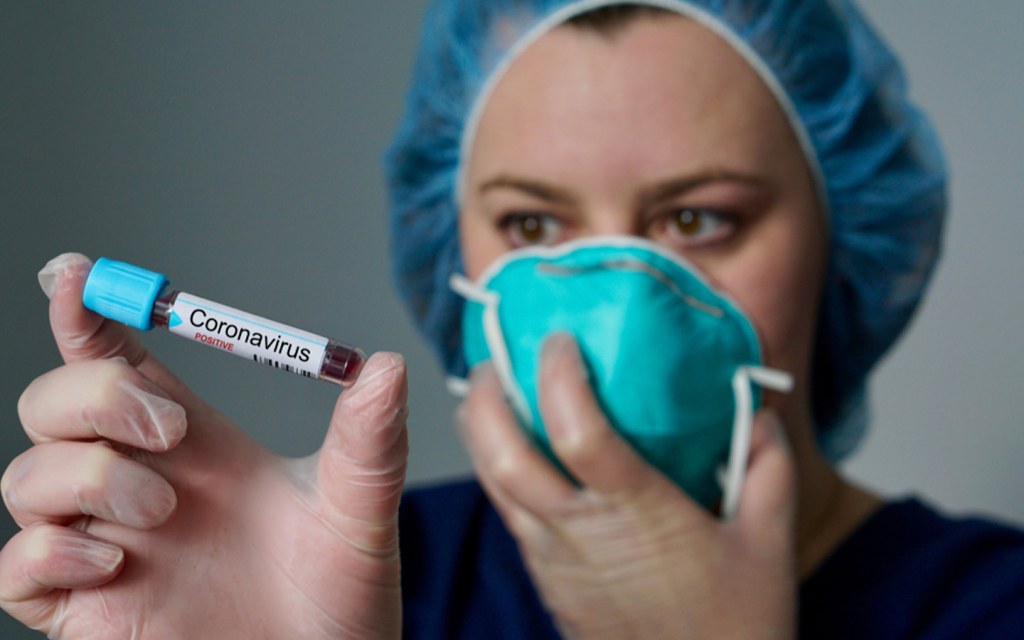
As per the definition published on the official page of the World Health Organisation (WHO),
“Coronavirus disease (COVID-19) is an infectious disease caused by a newly discovered coronavirus”.
Basically, the Coronavirus is a respiratory illness that can be transmitted from person to person. On the other hand, the Coronavirus in animals usually affects bats, snakes, camels, cats, and cattle, or farm animals. Identified first in Wuhan, China, the virus responsible for COVID-19 has been declared a novel virus, which means it wasn’t seen or encountered ever before. The novel Coronavirus is isolated from its natural reservoir, and it requires a human host to survive.
How to Identify Symptoms of the Coronavirus?
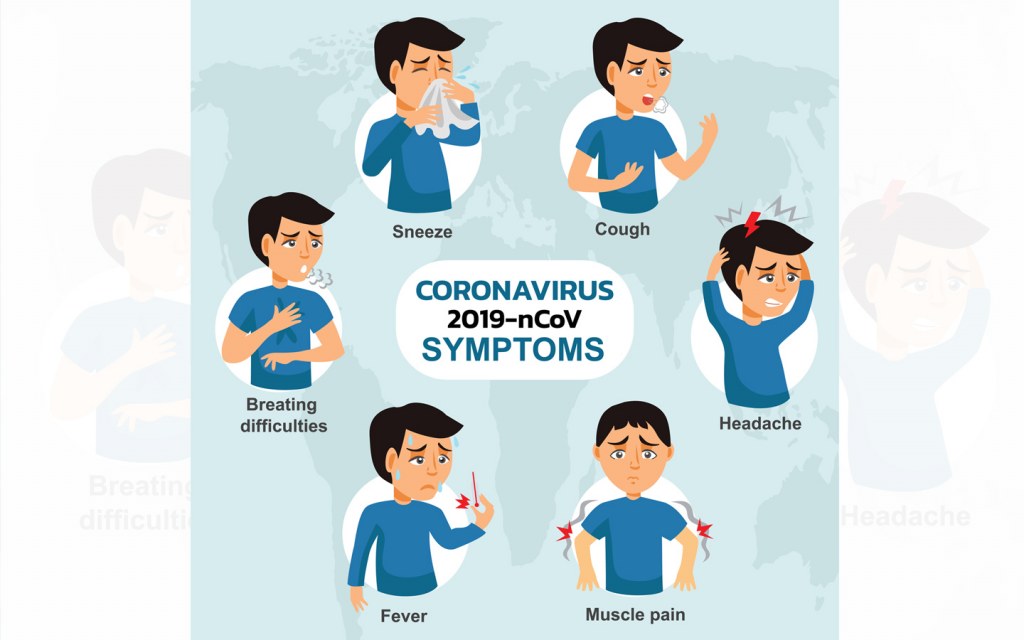
The COVID-19 is contagious, and it spreads through human transmission. According to the WHO, the global pandemic affects different people in different ways, which means that there are no exact symptoms of the Coronavirus, and some people tend not even to show common symptoms. However, COVID-19 has been declared a respiratory disease, and infected individuals often show symptoms such as:
- Fever
- Fatigue or Tiredness
- Dry Cough
In some cases, people also showed the following symptoms:
- Shortness of breath
- Irregular aches or pain
- Sore throat
- Diarrhoea
- Pneumonia
- Nausea
- Runny nose
The WHO has advised people with mild symptoms of the Coronavirus to immediately self-isolate to prevent the virus from spreading further – even if it’s a common flu.
Contact your medical provider or a local COVID-19 helpline for advice on testing and referral if you or anybody you know shows the slightest symptoms of the Coronvirus.
Further, the virus is more likely to attack people with weak immune systems, such as the elderly, young children, and pregnant women. But it isn’t certainly limited to people falling in this category, and every person is a potential carrier of this virus.
Precautions for Coronavirus
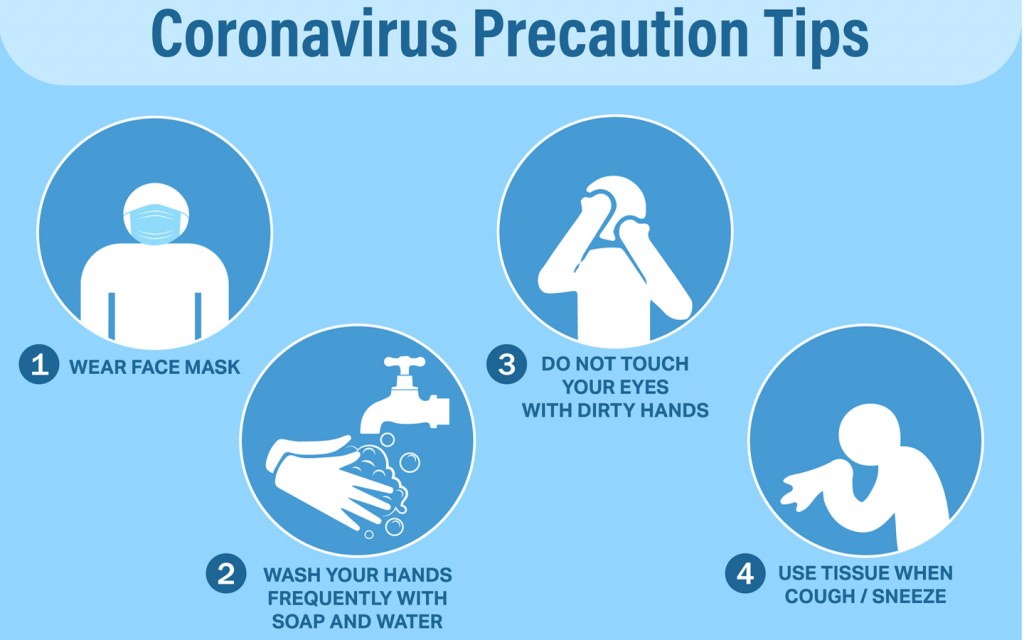
As mentioned at the beginning of the blog, the Government of Pakistan is implementing different measures for the safety of the public and controlling the disease from spreading in Pakistan. In order to help the government in this cause, here’s a list of precautions that you should take at home or work:
- Wash your hands frequently with soap and clean water. In case you do not have access to soap, clean your hands with an alcohol-based hand rub.
- Avoid touching your face.
- Maintain a distance of at least 1 metre (3 feet) between you and other people, regardless of whether they are showing signs of flu or the Coronavirus.
- Keep your mouth covered, especially when sneezing or coughing.
- Self-isolate if you are showing symptoms of the disease or if you have met someone who was recently tested positive for the infection.
- Avoid travelling unnecessarily. In case you need to travel urgently, you can take help from our comprehensive guide on travelling during a viral pandemic.
- Stay indoors as much as you can. Wear a protective mask and gloves if you need to go out.
- Keep a distance from a large group of people.
- Disinfect high-touch objects in your house and office, such as doorknobs, phone, and handrails, among others.
Always remember that the virus needs a weak host to survive, and a physically sound and healthy person can easily recover from the virus than the one with polluted lungs. So, refrain from any activities that weaken the lungs, especially smoking cigarettes, hookah, or vaping.
Myth and Facts about Coronavirus in Pakistan
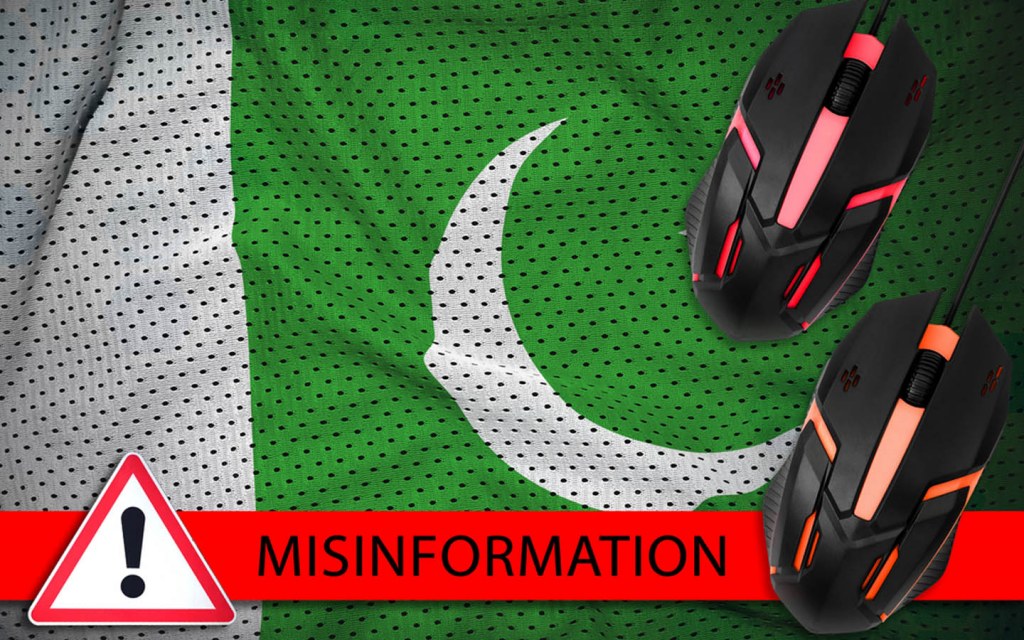
Information influx about coronavirus has made it easier for people to keep track of the current situation of the Coronavirus in Pakistan, albeit sometimes it gets harder to identify what is true and what is merely a myth.
List the help of the table given below by Zameen.com to help yourself stay updated with accurate information and safe from the current global pandemic.
| Statements | Myth | Fact |
| The Coronavirus cannot be transmitted in areas with the hot and humid climate | ✓ | |
| Kids cannot catch COVID-19 | ✓ | |
| Unnecessarily stocking up on masks makes fewer available for sick patients, health care workers and for people who genuinely need them | | ✓ |
| You will immediately know if you catch the Coronavirus | ✓ | |
| Scientists have developed a vaccine for the Coronavirus | ✓ | |
| The Coronavirus can be transmitted by the droplets from an infected person’s cough or sneeze | ✓ | |
| Warm-water steam and gargling can kill the virus inside your body | ✓ | |
| The new Coronavirus was intentionally created/released by people. | ✓ | |
| You can catch the Coronavirus by eating at a Chinese restaurant in Pakistan | ✓ | |
| Handwashing is by far the most and the best prevention from the Coronavirus in Pakistan | ✓ |
The World Health Organisation has recently launched a service on WhatsApp, where you can get accurate information and guidance on the current outbreak of the Coronavirus disease (COVID-19). For facts, myth busters, latest information and more you can send a message to:
World Health Organisation WhatsApp Number: +41-79-893-18-92
Frequently Asked Questions about Coronavirus in Pakistan
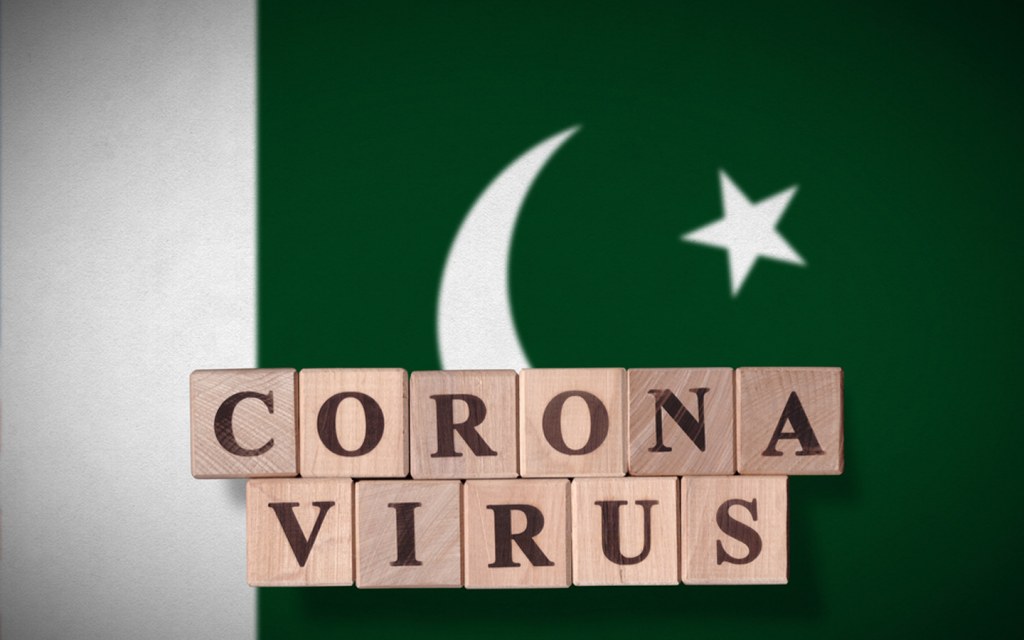
Ever since the first case of coronavirus was reported in Pakistan, people have a number of concerns and questions. Here’s a list of few popular questions has been asked about the infection across the nation:
When to Get yourself Tested for Coronavirus?
You only need to be tested for the Coronavirus if you have symptoms [mentioned above] of the infection. Here are a few more conditions indicating that you should get yourself tested for COVID-19:
- If you have recently travelled to the parts of the world with higher rates of infections such as Europe or China – epicentres of the current global pandemic.
- You had close contact with someone who has travelled to areas with high rates of infections.
- Get yourself tested if you recently met someone who has been tested positive for the Coronavirus.
Where and How to Get Yourself Tested for Coronavirus in Pakistan?
The Government of Pakistan and several other private institutions have established test centres for the Coronavirus in Pakistan. The list of the laboratories and hospitals include:
Islamabad
As of now, there’s only one centre in Islamabad. Residents of the federal capital and its nearby areas should go to the Virology Lab at the National Institute of Health in Chak Shahzad to get tested.
Address: Park Road, Chak Shahzad, Islamabad.
Phone number: 051-9255090-2, 051-9255112-4
Karachi
Residents of Karachi and its nearby cities should go to the following health facilities to get tested for the Coronavirus:
- Aga Khan University Hospital Karachi
Address: National Stadium Rd, Aga Khan University Hospital, Karachi.
Phone number: 021-111 911 911
- Civil Hospital Karachi
Address: Mission Road, near Nanakwara, Karachi
Phone number: 021-99215740
- DOW University Ojha Campus
Address: Suparco Road, Gulzar-e-Hijri, Scheme 33, Karachi
Phone number: 021-99232660, 021-38771111
- Indus Hospital
Address: Plot C-76, Sector 31/5, Opposite Darussalam Society, Korangi Crossing, Karachi
Phone number: 021-35112709-17
Lahore
People looking for Coronavirus test centres in Lahore should contact:
- Chugthai Lab: Chughtai Lab is also offering collections from your home. You just need to call or send them a WhatsApp message to request a home sample collection. The home collection service requires no additional fees; meanwhile, the charges for tests apply.
Phone number: 0311-1456789
- Punjab AIDS Lab Lahore
Address: PACP Complex, 6-Birdwood Road, Lahore
Phone number: 042-99201092-93
- Shaukat Khanum Memorial Hospital Lahore
Address: Khayaban-e-Firdousi, Block R3, Johar Town, Lahore
Phone number: 042-35905000
Multan
For residents of Multan and its nearby areas, Nishtar Hospital is currently serving as the only test centre for Coronavirus. Here’s how to reach the hospital or contact them:
Address: Nishtar Road, Justice Hamid Colony, Multan.
Phone number: 061-9330153
Peshawar
In Peshawar, the Punjab Health Laboratory at Khyber Medical University is carrying out COVID-19 tests. Here’s how you can reach them:
Address: F1, Phase 6, Hayatabad, Peshawar
Phone number: 0800 00742
Quetta
There’s a mobile diagnostic centre in Quetta. However, if residents wish to get themselves tested, they can go to the Punjab Health Laboratory at Fatima Jinnah Chest and General Hospital.
Address: Brewery Road, Quetta
Phone number: 0800 00742
Gilgit Baltistan
In Gilgit Baltistan, people can go to DHQ Hospital to get themselves tested for the Coronavirus. Here’s how to get in touch with them:
Address: Hospital Road, Gilgit, Gilgit-Baltistan
Phone number: 058-11920253
Muzaffarabad
Those living in AJ&K can go to Abbas Institute of Medical Science to get tested for the Coronavirus. For further information, please reach out to them via:
Address: Ambore, Muzaffarabad
Phone number: 058-22921016
Sukkur
Gambat Institute of Medical Sciences is the only centre for Coronavirus testing in Sukkur. Here’s how you can get in touch with them:
Address: Gambat, Khairpur
Phone number: 024-3640160, 720772-773
What are the Charges of Coronavirus Test in Pakistan?
Government hospitals are conducting free of cost tests in Pakistan. Meanwhile, private laboratories are charging up to PKR 7,900 for the tests after a screening and consultation. There’ a shortage of testing kits around the world, so hospitals are only focusing on people who fall in the following category:
- People who have travelled to high-risk areas.
- Individuals who have recently met people who have travelled to high-risk areas.
- People who have recently come in contact with someone testing positive for the Coronavirus.
- Individuals showing symptoms of the disease.
To learn more about coronavirus testing, charges, and procedure, head over to our recently published blog on where to get tested for Coronavirus in Pakistan.
How Many Quarantine Centres are there in Pakistan?
According to the National Action Plan for the Coronavirus (COVID-19), there are three quarantine centres in Pakistan. A 300-bedded facility in Islamabad has been declared as an isolation centre; meanwhile, others are near the Taftan border and Chaman.
Following cities across the country have also been identified as an important location for quarantine or isolation centres:
- Gujranwala, Rawalpindi, Lahore, Faisalabad, Multan, Bahawalpur, and Rahim Yar Khan in Punjab.
- Peshawar, Mardan, Bannu, and Kohat in Khyber Pakhtunkhwa.
- The quarantine centres in Sindh will be built in Karachi, Hyderabad, Sukkur, and Nawabshah.
- Quetta, Khuzdar, Turbat, and Sibi in Balochistan.
- The list of quarantine centres in AJ&K comprise Muzaffarabad and Mir Pur.
- Gilgit and Skardu have been nominated for quarantine centres in Gilgit Baltistan.
What is the Cure of the Coronavirus?
So far, there’s no exact cure for the Coronavirus in Pakistan or anywhere in the world. However, experts have said that just like any other disease, precaution is better than treatment. Since the Coronavirus can easily be transmitted from one person to another, it is best to avoid close contact with people who are showing symptoms of the infection.
Is There a Vaccine for Coronavirus?
As of now, there’s no vaccine in Pakistan or anywhere in the world for the Coronavirus.
Can Coronavirus be Treated at Home?
Since the virus is extremely contagious, the government has advised people to self-isolate or get admitted to a quarantine centre as soon as symptoms become visible.
However, if you are an otherwise healthy individual, doctors are more likely to advise you to stay indoors and to restrict contact with other people. You will be asked to rest, stay well-hydrated, and closely monitor your symptoms.
How Long Does it Take Before the Coronavirus Symptoms Appear?
The incubation period of coronavirus is estimated to be 14 days since it takes almost two weeks for an infected person to show the initial signs of being infected with the Coronavirus. But in a few rare cases, the virus has also been detected in a person after 24 days.
That is probably the reason why public health workers are urging people to self-isolate or quarantine at home for at least 14 days if they had any exposure to the outside world, have attended an event, or met people who have travelled abroad.
How to Stay Safe from Coronavirus at Home?
As mentioned earlier, prevention is better than cure. So, it is best to go the extra mile and take precautions such as:
- Disinfect highly contaminated objects such as car handles, phones, doorknobs, and handrails, regularly.
- Wash your hands at least once every hour.
- Use warm water for drinking as well as cleaning.
- Wear protective masks and gloves while cleaning.
- Immediately change your clothes if you have been outside, or you have been disinfecting/cleaning your house.
- Wash clothes in warm water using detergents and disinfectants.
Helpline for Coronavirus Pandemic in Pakistan
If you or anybody you know is showing signs of being infected with the COVID-19 in Pakistan, call the number given below:
Contact Number for the Coronavirus Helpline in Pakistan: 1166
This brings us to the end of our post on the frequently asked question about Coronavirus in Pakistan. We will keep this blog updated with the latest information, so bookmark this page and visit often.
For more updates on the current global epidemic in Pakistan, stay connected to Zameen Blog. And, if you found our piece informational, share this with your friends and let us know at blog@zameen.com! Also, like our Facebook page.
Disclaimer: All the information in this blog has been collected from trusted sources such as the World Health Organisation, John Hopkins, and a few national news portals for giving you an idea about the current situation of the Coronavirus in Pakistan. Zameen.com doesn’t take responsibility in case the information on the website alters or changes with time. However, we commit to updating the blog with the latest information.



